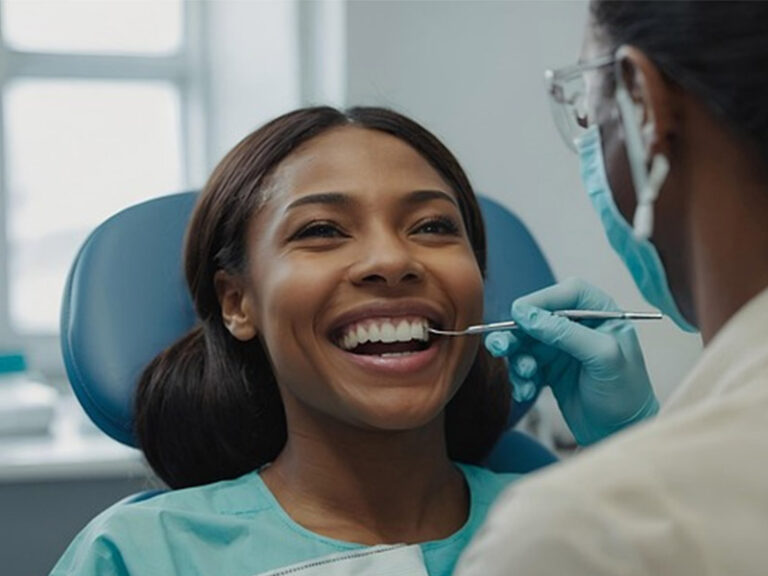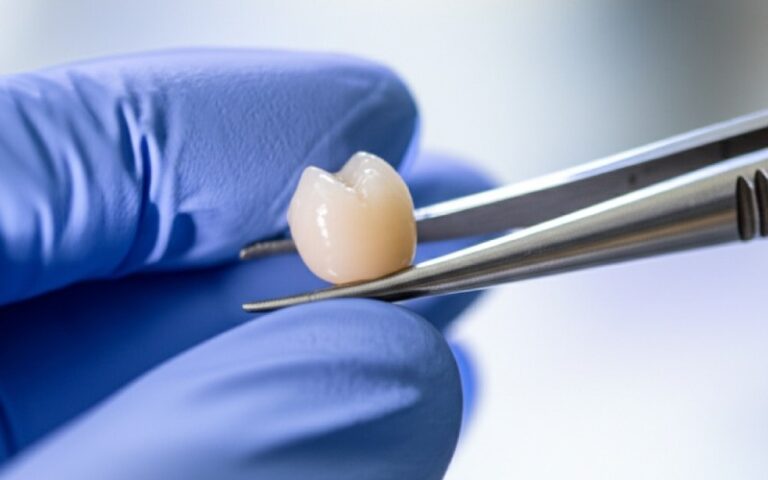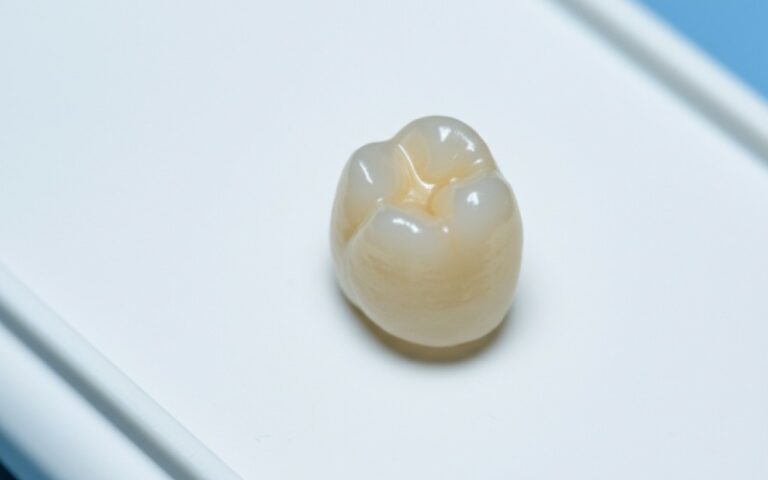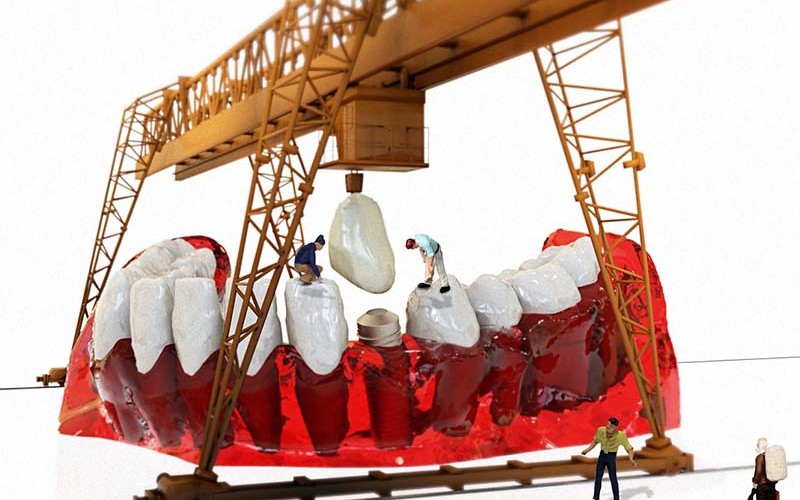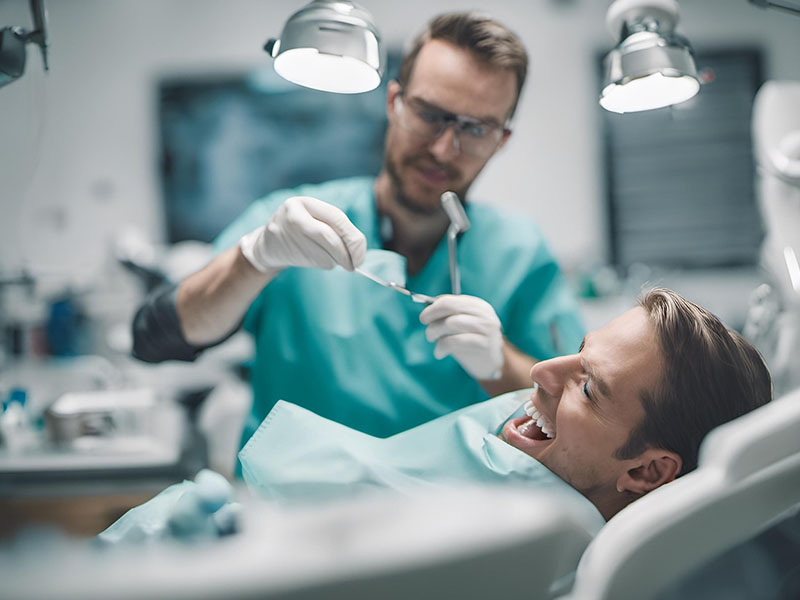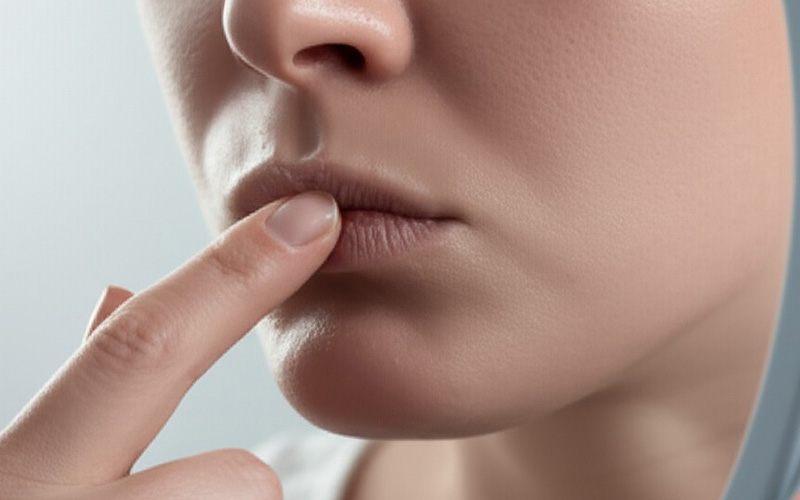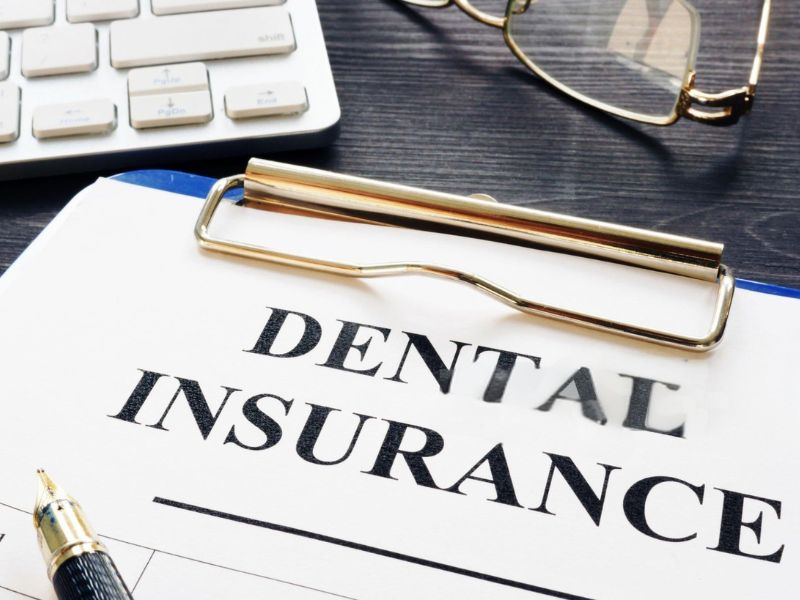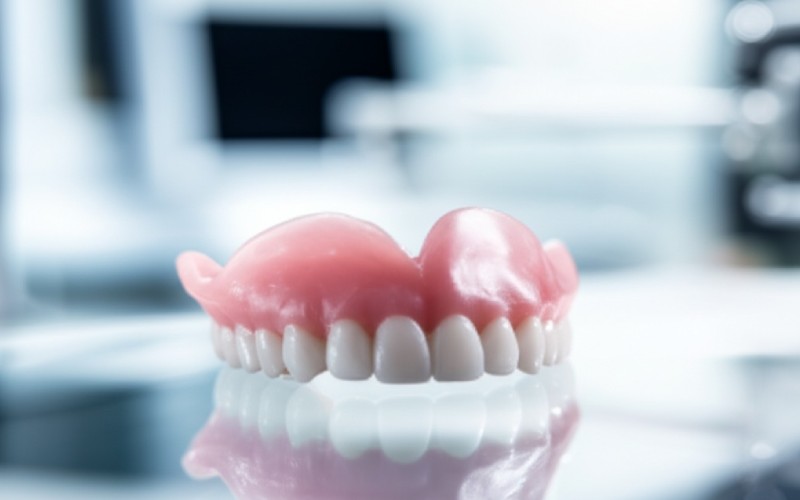
Dentur Unterfütterungen und Aufbasen: Was Sie über Ihre vorhandenen Prothesen wissen müssen
Most people don’t know about denture relines and rebases. They think that if their Prothese becomes loose, they need a whole new one. That can be costly and time-consuming. But often, a simple denture repair can make your existing dentures feel brand new again. This article will be your guide. I’m going to tell you everything you need to know about denture relines and rebases. We will cover what they are, when you need them, and how they work. This knowledge can save you money and make wearing dentures much more comfortable.
Inhaltsübersicht
What Exactly Is a Denture Reline?
Let’s start with the basics. What is a denture reline? Think of it as resurfacing the bottom of your denture. Over time, your jawbone and gum tissues change. This is a natural process. Because of this, your denture might not fit as snugly as it once did. A reline is an attempt to fix this. The process adds new material to the inside of the denture. This new layer fills in the gaps where your gum has shrunk.
The goal of a denture reline is simple: to improve the fit of your denture. It makes the denture conform to the new shape of your mouth. A proper reline makes the denture more stable and comfortable. This is a common and very effective type of denture repair. A good reline can make an old, loose denture feel secure again. The reline process is crucial for long-term denture care.
This procedure focuses only on the side of the denture that touches your gum. The teeth of the dentures are not changed. A reline is a great option when the teeth are still in good condition but the denture fit has become loose. It’s a key part of keeping your denture functional.
When Do My Dentures Need a Reline or Rebase?
How do you know if you need a denture reline or a denture rebase? The signs are usually easy to spot. Your dentures start to feel loose. They might slip when you talk or eat. You might find yourself using more and more denture adhesive just to keep them in place. This is a big sign that your denture does not fit as well.
Another sign is sore spots on your gum. A loose denture can rub against your gums, causing pain and irritation. If wearing dentures becomes uncomfortable, it is time to see your dentist. They can check the condition of your dentures and your mouth. Relining is required when the fit of dentures becomes poor. Your dentist will tell you if you need a reline or rebase.
Remember, dentures need regular maintenance, just like a car. Experts say you should have your dentures relined or rebased every one to two years. Your body is always changing, so your prosthetic denture needs to change with it. Don’t wait until the fit is terrible before the reline. Regular check-ups at a dental clinic are the best way to keep your dentures in top shape.
What’s the Difference? Denture Relining vs. Rebasing Explained
People often confuse a denture reline with a denture rebase. They are not the same thing. As we discussed, a denture reline adds new acrylic material to the inside surface of your denture. It’s a resurfacing job to improve the fit. It is the most common type of denture repair.
A denture rebase is a more involved process. A rebase replaces the entire pink acrylic denture base. The only parts that are kept are your original denture teeth. This procedure is used when the denture base is cracked, weak, or stained. It is also used if the base material used to make the denture may yield a better fit with a full replacement. A denture rebasing is like putting a new foundation on a house while keeping the main structure.
So, the key difference in denture relining vs. rebasing is how much of the denture is replaced. A reline just adds a new lining. A rebase replaces all the pink acrylic. Your dentist will decide which one you need. The choice depends on the condition of your complete denture or partial dentures. Both relines and rebases are done to improve the fit and function of your denture.
Can I Reline My Dentures at Home with a Dental Lab Kit?
I see ads for do-it-yourself denture reline kits all the time. They promise a quick and cheap fix. Can you reline your dentures at home? My advice is simple: don’t do it. While a dental lab kit might seem like a good idea, it can cause big problems. Getting a good impression of your gum is very hard to do on your own. A bad reline can damage your denture and hurt your mouth.
Using a home reline kit can also make it harder for a professional to fix your denture later. You might create high spots that put uneven pressure on your jaw. This can lead to bone loss. A professional dentist or lab technician knows how to use the right impression material to get a perfect fit. They also use high-quality, safe acrylic materials.
The money you save on a kit for dentures at home is not worth the risk. A proper denture reline done by a professional is a precise dental procedure. It ensures the health of your mouth and the long life of your denture. Avoid the temptation of a cheap dental lab kit and trust a professional.
What Happens During a Laboratory-Processed Reline at a Denture Clinic?
When you get a professional denture reline, the process is very precise. Your dentist will first check your denture and your mouth. They will remove a thin layer of acrylic from the inside of the denture. This makes room for the new reline material.
Next, your dentist will apply a soft impression material to the inside of your denture. They will place the denture in your mouth and ask you to bite down and make certain facial movements. This step is called a functional impression. It helps to border mold the denture to the exact shape of your moving tissues. The impression material captures the contour of the tissue perfectly. This impression is what makes the new reline fit so well.
After the impression is made, the denture is sent to a dental lab. At the dental lab, a lab technician will use the impression to create the final hard or soft reline. This is called a laboratory-processed reline. Some offices can do a same-day denture reline, but sending it to a professional dental lab often gives the best results. A good reline service will give you an improved fit.
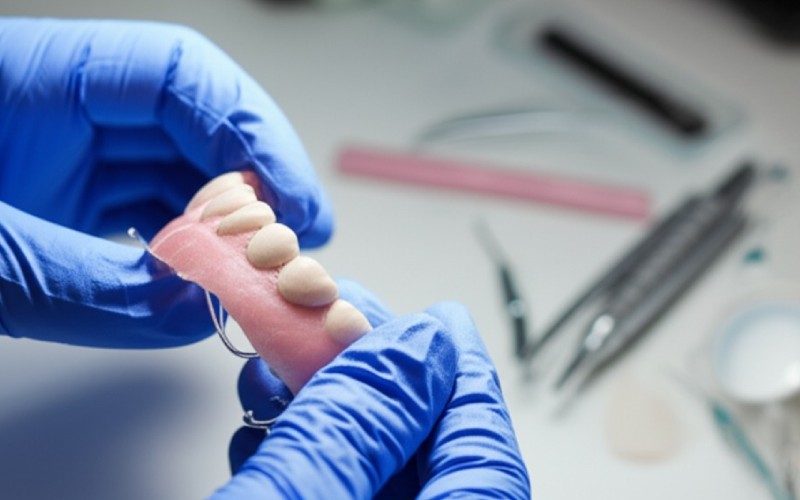
Are There Different Types of Denture Relines?
Yes, there are two main types of denture reline procedures: a hard reline and a soft reline. A hard denture reline is the most common. The lab uses a hard acrylic material that is just like your denture base. This type of reline is very durable and can last for several years. Every denture will eventually need a hard reline.
A soft reline uses a pliable, soft reline material. A soft reline may be used when a patient has very sore or tender gums. The soft material acts as a cushion. This makes wearing the denture much more comfortable. A soft reline is a good option for people who have just had teeth removed or for those with chronic gum soreness. The downside is that a soft denture reline is not as durable. It needs to be replaced more often, usually every year or so.
Your dentist will help you choose the best option for relining or rebasing. They will consider the health of your gum tissue and the stability of your dentures. A soft reline can be a great temporary solution to help your gum heal before getting a more permanent hard reline. This can be used for a complete denture or for partial dentures.
How Does a Denture Rebase Give My Denture a New Feel?
A denture rebase is a complete overhaul of your denture base. It can make an old set of dentures feel like a new denture. The process starts just like a reline, with your dentist taking a new impression. This impression is key because it captures the current shape of your mouth. Your denture, along with the impression, is sent to a denture laboratory.
At the dental lab, the technician will carefully remove the teeth from your old denture base. They will then create a brand new acrylic denture base using the new impression. The original teeth are then set into this new acrylic base. The result is a denture with a perfect fit and a fresh, clean base. This is a great choice when your denture teeth are in good condition, but the base is worn out.
This process of denture rebasing is more complex than a reline. It’s used when the denture acrylic is old and weak or has been broken. A rebase gives you the benefit of a new dental prosthetic without the cost of a completely new denture. A rebase is an excellent choice for relining or rebasing the denture when the base itself is the problem.
Why Is a Professional Dental Lab So Important for Denture Repair?
I cannot stress this enough: the quality of your denture repair depends on the skill of the Dentallabor. Your dentist takes the impression, but the lab technician does the actual work of the reline or rebase. A professional dental lab has the right equipment and materials to do the job right. They use high-quality acrylic that is strong and safe for your mouth.
A skilled lab technician understands the fine details of denture construction. They know how to create a perfect fit that is both comfortable and functional. This is not something you can replicate at home. A good dental lab, like Stomadent Dental Laboratory, works closely with your dentist to ensure the best outcome for your denture reline or denture rebase.
Choosing a dentist who works with a reputable dental lab is key. This partnership ensures that your custom denture or partial dentures will be serviced correctly. This is true for all dental work, from a reline to dental bridges. The quality of the dental lab makes a huge difference in the final product. A professional dental lab is your best bet for any denture repair.
How Do I Know if a Reline or a Rebase Is the Right Type of Denture Repair for Me?
Deciding between a reline or a rebase can be confusing. Here’s a simple way to think about it. If your dentures are in good shape but feel loose, a denture reline is probably all you need. The reline may be the perfect fix. The teeth are still in good shape, and the pink acrylic base is strong. The reline is an attempt to simply improve the fit.
You might need a denture rebase if there are bigger issues. A rebase is used when the denture acrylic base is cracked, broken, or very old and discolored. It’s also the right choice if your denture has had multiple relines and the fit is still not right. Your dentist will recommend a rebase when your denture teeth are in good condition, but the base itself needs to be completely replaced.
Ultimately, your dentist is the one who will make the final call. They will examine your mouth and your denture. They will tell you whether a reline or a rebase is the best option for relining or rebasing. Trust their professional judgment. This is the everything you need to know about denture choices.
Where Can I Find the Best Partner for Denture Services?
Finding the right dental team is crucial for your long-term denture care. You need a dentist and a dental lab that you can trust. When looking for denture services, ask your dentist which dental laboratory they use. A good dentist will be proud to tell you about their lab partner. Look for a team that has a lot of experience with relines and rebases.
A place like Stomadent Dental Lab is known for high-quality work. They are a great partner for denture services. They work with dentists to provide excellent denture reline and denture rebase services. Having dentures relined or rebased by a top-tier team ensures your denture will be comfortable and last a long time. They can even handle complex cases involving partial dentures.
Don’t be afraid to ask questions. Ask about the materials they use, like the acrylic and rope wax. Ask about their process. A good team will be happy to explain everything to you. The goal is to keep your dentures in reasonable condition and follow a good maintenance plan. This ensures your smile stays healthy and bright. Remember, a good denture makes wearing dentures a positive experience.
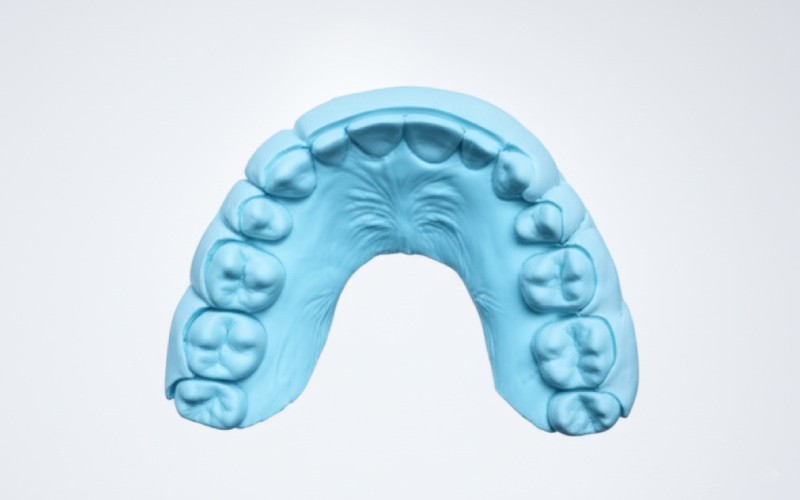
Wichtigste Erkenntnisse zum Mitnehmen
- A reline is not a rebase. A denture reline resurfaces the inside of your denture. A denture rebase replaces the entire pink base.
- Loose fit means it’s time. If your denture slips or causes sore spots, see your dentist. You likely need a reline.
- Don’t DIY. Home reline kits are risky. Always get a professional denture reline at a dental clinic.
- Lab quality matters. The skill of the dental lab technician is critical for a good denture repair.
- Regular check-ups are key. See your dentist regularly to check the fit and condition of your denture. This helps you know when a reline is needed.

